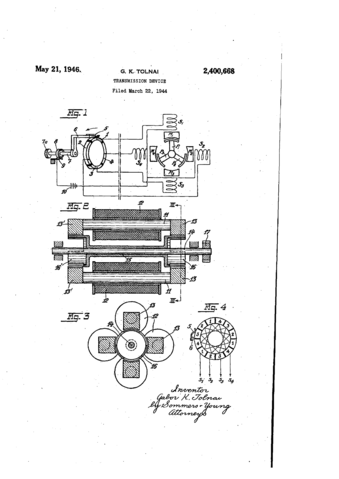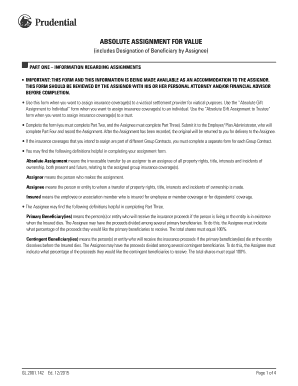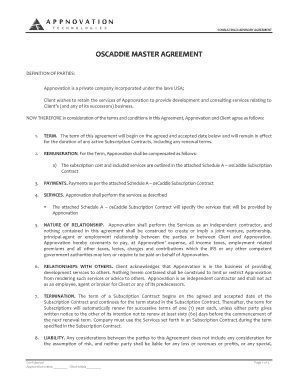Assignment
Understanding Assignors
The assignment of power of attorney can grant broad rights or be limited in scope by the terms set by the assignor. The rights could be for the specific handling of a contract or business deal that the assignor cannot be present for.
Assignor and Assignee
Is the assignor the seller?
An assignor is a person who transfers property rights or powers to another. An assignee is a person or entity to which property rights or powers are transferred. An assignee is the one to whom assignments are made.Each type of assignment can carry a different set of regulations with certain assignments, such as intellectual property rights, having special conditions that must be met. An assignor may be the grantor of an assignment, a liability, or appoint somebody to act in the stead of another person or entity.Personal service contracts cannot be assigned without the permission of the parties, such as a contract between an employee and an employer. In order for an assignment to be a legal assignment, the assignment must be agreed in writing, signed by the assignor, and the other party to the contract must be given notice of the assignment. A legal assignment is usually preferable as this allows the assignee to enforce the rights in their own name directly.
Assignee
If any time or interest is reserved by a tenant assignor then the act is not an assignment, but is instead a sublease. In the current business world of fast changing structures, agreements, employees and projects, the ability to assign rights and obligations is essential to allow flexibility and adjustment to new situations. Conversely, the ability to hold a contracting party into the deal may be essential for the future of a party. Thus, the law of assignments and the restriction on same is a critical aspect of every agreement and every structure. This basic provision is often glanced at by the contracting parties, or scribbled into the deal at the last minute but can easily become the most vital part of the transaction.However, special duties and liabilities attach to transfers of the right to possess property. With an assignment, the assignor transfers the complete remainder of the interest to the assignee. The assignor must not retain any sort of reversionary interest in the right to possess. The assignee’s interest must abut the interest of the next person to have the right to possession.
Who is an assignor in law?
An assignor is a person, company, or other entity who transfers rights that they hold to another entity. The assignor transfers to the assignee.
Ways an Assignor Can Control What Rights Are Transferred
In the absence of an express provision to the contrary, the rights and duties under a bilateral executory contract that does not involve personal skill, trust, or confidence may be assigned without the consent of the other party. But note that an assignment is invalid if it would materially alter the other party’s duties and responsibilities.An assignment is a legal term used in the context of the law of contract and of property. In both instances, assignment is the process whereby a person, the assignor, transfers rights or benefits to another, the assignee. An assignment may not transfer a duty, burden or detriment without the express agreement of the assignee.
DEFINITION of Assignee
- An assignment is a legal term used in the context of the law of contract and of property.
- In both instances, assignment is the process whereby a person, the assignor, transfers rights or benefits to another, the assignee.
- An assignment may not transfer a duty, burden or detriment without the express agreement of the assignee.
The other party to the original contract is called the obligor.For example, suppose I sell my car to Larry for $10,000.00. He does not have $10,000.00 in cash, but executes an agreement stating that he agrees to pay me $500.00 a month for 20 months. Larry is the obligor, I am the assignor, and Peggy is the assignee. Ownership of intellectual property, including patents, copyrights, and trademarks, may be assigned, but special conditions attach to the assignment of patents and trademarks. In the United States, assignment of a patent is governed by statute, 35 U.S.C.§ 261.

The right or benefit being assigned may be a gift (such as a waiver) or it may be paid for with a contractual consideration such as money. The assignment of rights under a contract usually completely transfers the rights to the assignee to receive the benefits accruing under the contract. Ordinarily, the term assignment is limited to the transfer of rights that are intangible, like contractual rights and rights connected with property. Merchants Service Co. v. Small Claims Court, 35 Cal. 2d 109, (Cal. 1950).Once an assignment is effective, the assignee stands in the shoes of the assignor and assumes all of assignor’s rights. Hence, after a valid assignment, the assignor’s right to performance is extinguished, transferred to assignee, and the assignee possesses the same rights, benefits, and remedies assignor once possessed. It generally means that there is a transfer of property, or of a right, from one party to another. These parties are the assignee, the assignor, and the obligor.An assignment of a patent can be recorded with the United States Patent and Trademark Office. Although such recording is not required, if an assignment is not recorded at the USPTO within three months or prior to a subsequent assignment, the assignment will be void against a subsequent assignee without notice of the earlier, unrecorded assignment. Real property rights can be assigned just as any other contractual right.

For example, an assigner might grant power of attorney of property to an assignee to take control of specific assets. This might be done if the assignor is not available because of extended overseas travel or they are incapacitated by illness. The rights they assign to the agent would allow that person to take action such as completing a sale or other transaction. The assignor who grants power of attorney of property can tailor the rights assigned to the agent to be for a specific set of assets and a defined period of time.An assignor can include an individual or entity who grants power of attorney to an agent to act on their behalf. This type of assignment can carry very specific terms and limits that are outlined by the assignor.
Parties in an Assignment: Rights of the Assignee, Assignor & Obligor
For example, an executor of an estate may be appointed through a will left by a decedent.Power of attorneymay be assigned to a person to tend to certain affairs for a person while they are out of the country or not capable of taking action for themselves. This is true in cases where the assignor is entitled to the money at the time of the assignment or will be entitled to the money at some point in the future. My assigning my contract with Larry to Peggy is an example of an assignment of future rights to money. Any contract may be assigned with permission of the obligor.
Encumbrances And Nonpossessory Interests In Real Property

The assignee typically will only hold the rights of power of attorney for a specified time or particular circumstances. For example, “You have no right to sell, transfer, assign, sublease, or encumber the equipment or this agreement” protects the Lessor’s collateral and credit underwriting guidelines in the event the lessee ever wants to transfer the lease to another party. However, it is possible to assign the lease, but the new party (assignee) will be subject to the lessor’s credit evaluation process and approval. Even if the assignee is approved, the existing lessee’s (assignor’s) personal guarantee(s), if any, might not be released unless the assignee’s credit stature is extremely strong.
